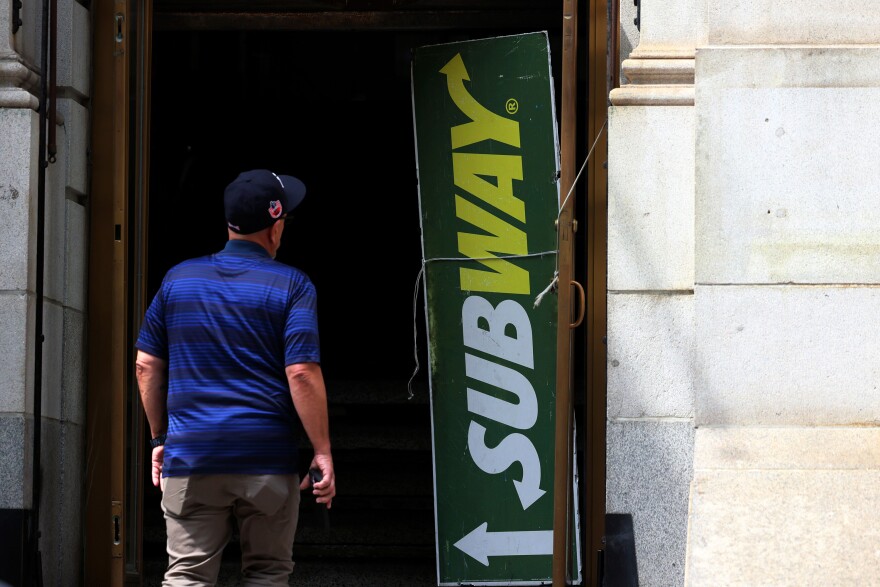Subway, which was founded in Connecticut in 1965, announced Thursday it’s being bought by a private equity firm.
Affiliates of Roark Capital Group are buying the sandwich shop company. The purchase price was about $9.6 billion, The Wall Street Journal reports.
Roark's investments include a number of fast food and sit-down restaurants, including Dunkin', Jimmy John's, Moe's and Arby's.
Subway has long been based in Milford, although it also has a headquarters in Miami.
"This transaction reflects Subway's long-term growth potential, and the substantial value of our brand and our franchisees around the world," Subway CEO John Chidsey said in a statement. "Subway has a bright future with Roark, and we are committed to continuing to focus on a win-win-win approach for our franchisees, our guests and our employees."
Subway has nearly 37,000 locations in more than 100 countries.
Additional international expansion is likely to be the next step for Subway’s growth, said David Souder, senior associate dean for research at the University of Connecticut School for Business.
“Subways are fairly ubiquitous in the U.S., so the idea of additional stores doesn’t really hold up,” Souder said. “The idea that people are going to suddenly buy a lot more sandwiches, that doesn’t really hold up. So you would be looking for more locations internationally, which is what they’re talking about.”
Souder said there is no reason to believe that Roark has any immediate plans for a drastic restructuring.
According to Subway, back in 1965, 17-year-old Fred DeLuca asked a family friend for advice on how to pay his college tuition. “With an idea to open a submarine sandwich shop and an initial $1,000 investment from Dr. [Peter] Buck, the two formed a business partnership that would ultimately change the landscape of the quick service restaurant industry,” the company said.
They opened their first restaurant in Bridgeport in 1965.
In the U.S., Subway has been losing market share in recent years to fast-growing rivals like Panera and Firehouse Subs, which feature more varied menus and newer stores. Subway currently controls about 23% of the $43 billion U.S. sandwich and deli market, according to Technomic, a consulting company. That’s down from 34% in 2017.
Subway began a program to modernize its stores in 2017. In 2021, it refreshed its menu and upgraded ingredients; last year it introduced a line of chef-developed sandwiches.
In July, the company said its global same-store sales — or sales at locations open at least a year — were up 9.8% from the prior year.
Connecticut Public's Eric Aasen and The Associated Press contributed to this report.





